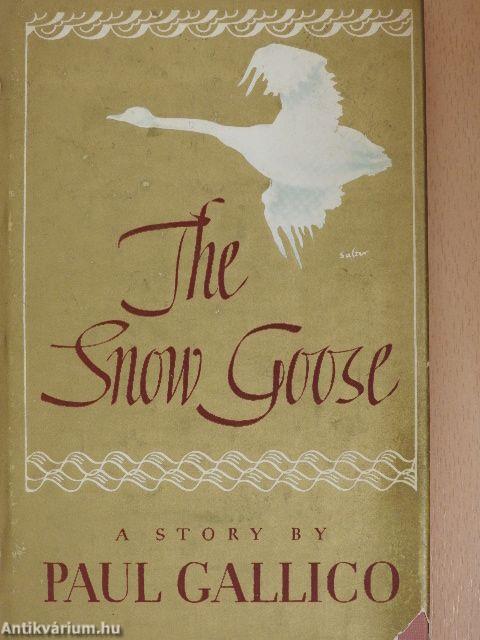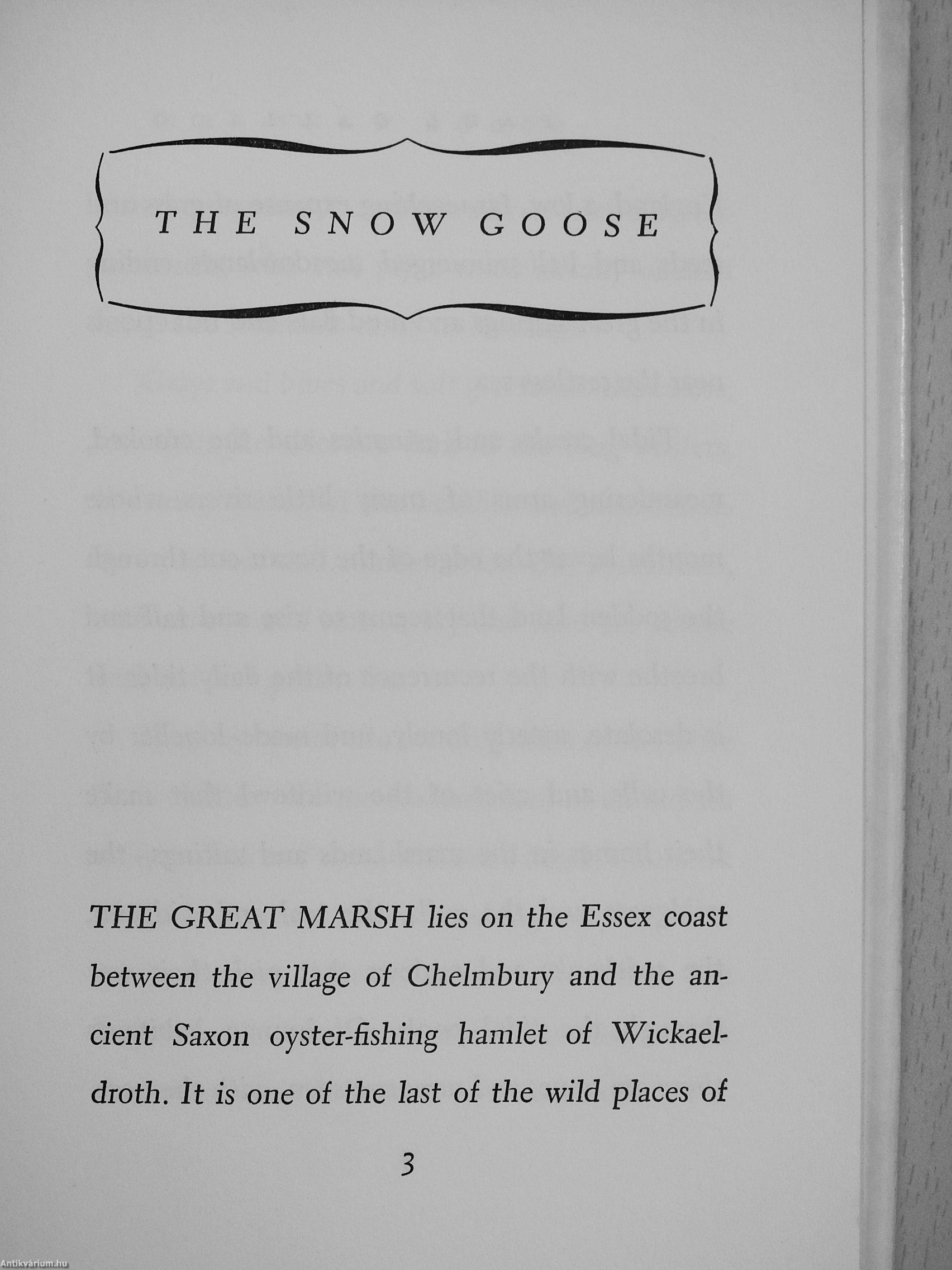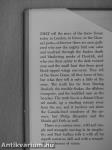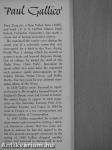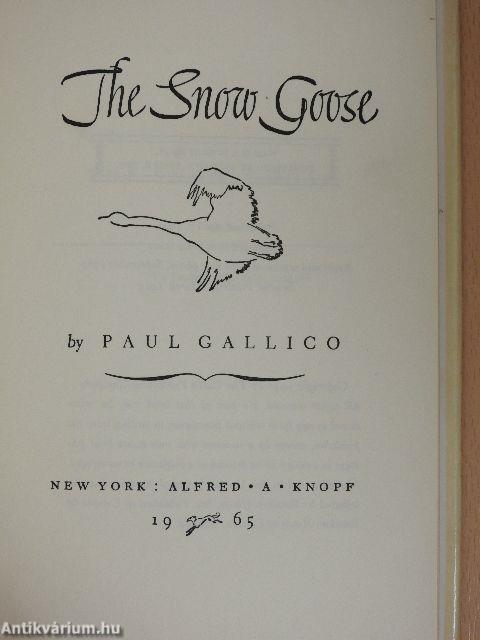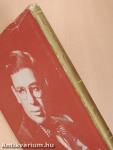1.067.297
kiadvánnyal nyújtjuk Magyarország legnagyobb antikvár könyv-kínálatát

VISSZA
A TETEJÉRE
JAVASLATOKÉszre-
vételek
The Snow Goose
| Kiadó: | Alfred A. Knopf |
|---|---|
| Kiadás helye: | New York |
| Kiadás éve: | |
| Kötés típusa: | Vászon |
| Oldalszám: | 57 oldal |
| Sorozatcím: | Borzoi Books |
| Kötetszám: | |
| Nyelv: | Angol |
| Méret: | 19 cm x 12 cm |
| ISBN: | |
naponta értesítjük a beérkező friss
kiadványokról
naponta értesítjük a beérkező friss
kiadványokról
Előszó
TovábbFülszöveg
I t , mi
r ^.
i t i
; ; ' , . I
/i
i' f'
THEY tell the story of the Snow Goose today in London, in Dover, in the Channel ports—wherever there are men gathered who saw the mighty bird soar calm and unafraid through the leaden death and blanketing smoke of Dunkirk, and who owe their safety to the dark twisted man and the small boat that those great black-tipped wings convoyed. They tell of the Snow Goose, all they know of her; but what they tell is only a little of the story. The truth lies far from blazing Dunkirk, the terrible Stukas, the offshore transports, and the huddled men on the beaches. The truth lies in a distant Channel marsh, up a winding estuary away from the sea; and it involves not alone the Canada-bred wanderer of the airways, but Philip Rhayader and the blonde girl Frith as well.
Theirs is a curious story, wild and simple and strangely moving in its simplicity; and Paul Gallico tells it with all his superb narrative skill and with a remarkable... Tovább
Fülszöveg
I t , mi
r ^.
i t i
; ; ' , . I
/i
i' f'
THEY tell the story of the Snow Goose today in London, in Dover, in the Channel ports—wherever there are men gathered who saw the mighty bird soar calm and unafraid through the leaden death and blanketing smoke of Dunkirk, and who owe their safety to the dark twisted man and the small boat that those great black-tipped wings convoyed. They tell of the Snow Goose, all they know of her; but what they tell is only a little of the story. The truth lies far from blazing Dunkirk, the terrible Stukas, the offshore transports, and the huddled men on the beaches. The truth lies in a distant Channel marsh, up a winding estuary away from the sea; and it involves not alone the Canada-bred wanderer of the airways, but Philip Rhayader and the blonde girl Frith as well.
Theirs is a curious story, wild and simple and strangely moving in its simplicity; and Paul Gallico tells it with all his superb narrative skill and with a remarkable tenderness of vision.
Taui QaUiof
Paul Gallico, a New Yorker born (1897) and bred (P. S. 6, DeWitt Clinton High School, Columbia University), has made a career out of having successful careers.
He captained the varsity cx^ew during the senior year of a university career that was inteiTupted for a hitch in the Navy during World War I, during which he served as gunner's mate and learned deep-sea diving. Out of college, he joined the stall of the Daily News (New York), becoming its sports editor two years later. He organized such amateur sports extravaganzas as the Golden Gloves, Water Circus, and Roller Derby. For two years he was assistant managing editor of the News.
In 1936 Gallico wrote Farewell to Sport, and meant it. He bought a beamed house on England's Devon coast and turned to fiction. His stories began to appear in such magazines as the Saturday Evening Post, Cosmopolitan, Esquire, and Vogue. In 1944 he went to France as a war correspondent and European editor of Cosmopolitan.
In 1947 Gallico suspended his output of short stories and returned to writing a satirical, humorous column. But two years sufficed to exhaust for him the appeal in the life of a general newspaper columnist. In the spring of 1949 Gallico dropped another career and returned to Devon and to new fields in fiction.
¦ 'f.m ¦ i'<i i'i t
¦ ''H'/V'
' .!III' ii' I
; vii
' 'III'/:"!:, I'I »
'I ' J I I'i^r
' } i 'Mi
, i ' > h- Ji ' ¦'.hf'' ' Vissza
Témakörök
- Idegennyelv > Idegennyelvű könyvek > Angol > Szépirodalom > Regény, novella, elbeszélés
- Szépirodalom > Regény, novella, elbeszélés > Az író származása szerint > Amerika > Amerikai Egyesült Államok
- Szépirodalom > Regény, novella, elbeszélés > Tartalom szerint > Romantikus regények
- Szépirodalom > Regény, novella, elbeszélés > Tartalom szerint > Lélektani regények



